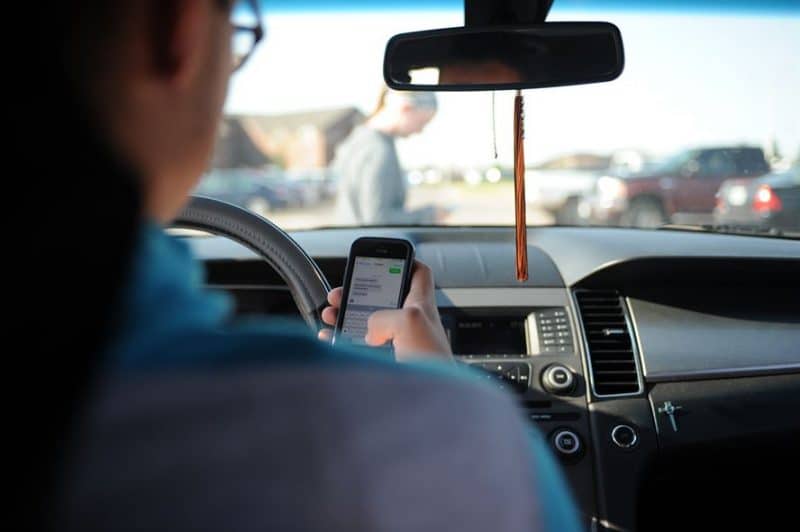Each time you board a motor vehicle, turn the key, and set your foot to the pedal, you are assuming an enormous responsibility for your own safety and for those around you. On your commute, you will encounter pedestrians, bicyclists, other motorists, and telephone poles that depend on you to stay on your own side, drive at a reasonable speed, and give them their right of way; and they have every right to expect that you will do so.
However, too few people appreciate the risks they accept in operating a motor vehicle, imagining that if they are moderately alert, the others on the road will pick up the slack for them. This has probably been the case often enough that they are willing to make distracted driving a habit. It is especially easy for young, inexperienced drivers who have never been in a car accident to let their attention drift when they are behind the wheel. Yet, the National Highway Traffic Safety Administration estimates that in the U.S., the average citizen has a 30% chance of undergoing a serious car accident at some point during their life. While many of these are due to vehicular malfunctions and incommodious driving conditions, many more accidents are caused by human factors like driver distraction…the vogue form of which is currently texting.
By the time legislation against texting and driving was put into place, it was already an ingrained habit for many who claimed that they were different and that no texting accidents would take place on their watch. Nevertheless, this does not harmonize well with the National Safety Council’s reckoning that 1.6 million accidents are caused by cell phone use/texting annually. As a consequence, a number of states have taken action to combat this destructive practice. The most common deterrents to the practice are listed below:
Table of Contents
1. Fines
In some states, the penalty for texting at the wheel is a fine (starting at about $20). Texting and driving is treated as an accident caused by any other type of distraction. This is partly because texting accidents are a relatively new road hazard, and many people do not realize the risks thus far. In states where this is the case, actual recklessness must be proven in order to treat texting as more than an act of absentmindedness—that is, it must be shown that the texting driver knew the risks beforehand. This is a heavy burden of proof, so fines are the modus operandi in such places, and where the accident that ensued was not serious.
2. Community service
Other states have enacted more stringent codes, requiring community service in accidents that cannot be definitively categorized as texting accidents, but in which texting played a role. The logic behind such penalties is that the driver must necessarily know that texting and driving carries some risks, and that their behavior cannot, therefore, be treated as an accident.
3. Prison sentence
Since 2009, several states have passed even tougher legislation to deter the practice of texting and driving. Utah, in particular has taken a hard-line stance against it, treating it as an act of negligence comparable to drunk driving. Says Lyle Hillyard, a legislator who supported the bill, “It’s a willful act. If you choose to drink and drive or if you choose to text and drive, you’re assuming the same risk.” One violator of the Utah law against texting and driving, whose actions caused two deaths, was sentenced to a 90 days in prison. The maximum-length prison sentence for a fatal texting accident is 15 years, and fines may run to $10,000—far greater than in those states in which a fine is often the only penalty for even a serious texting accident.
For those whose lives have been negatively impacted by texting and driving, there has never been a better time to seek compensation for recovery expenses—the law and public awareness are increasingly on their side. To learn what your options are, contact a caring, competent personal injury attorney at Good Guys Injury Law for a free consultation at (506) 801-0800.
Image courtesy of: Airman Sadie Colbert
